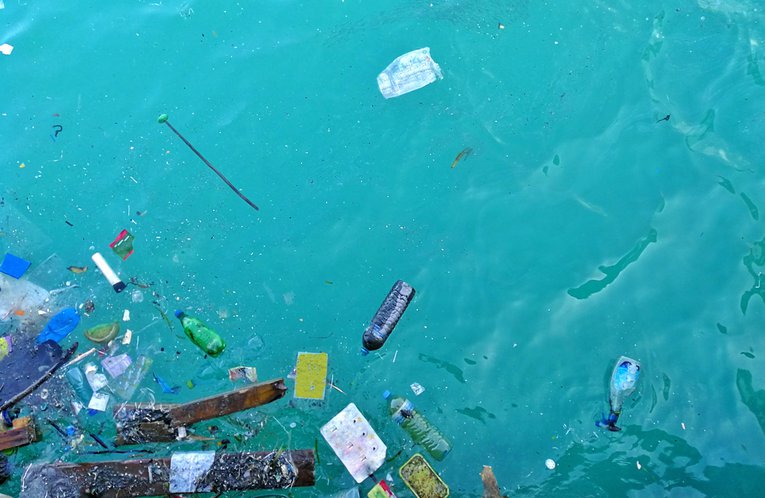
Our seas are swimming in wet wipes – it’s time to take action
Every year 11 billion wet wipes are used in the UK and around 90% of them contain plastic. When flushed into our sewers the plastic in wet wipes breaks down into microplastics, washing into the sea where they start to break down killing marine wildlife and clogging up our beaches. Help us call for urgent action.
The disposal of single-use, wet wipes is a growing problem and is a leading cause of harm for our water systems and our marine environments.
11 billion wet wipes are used in the UK every year, equating to nearly 200 wet wipes per person.
Wet wipes break down into microplastics
Once wet wipes enter our sewage system these plastic wipes begin to break down into microplastics, tiny fragments of plastic which are washing into our rivers and seas and being eaten by marine animals.
As well as entering into our food chain via the seafood that we eat, its contributing to the environmental damage caused by plastic waste. Millions of marine animals dying each year due to plastic.

Credit: Rich Carey via Shutterstock
Wet wipes don’t need to contain plastic
There needs to be a move towards less disposable products and we urge people to use reusable products where possible to cut down on waste and pollution, but we understand that wet wipes make a difference to improved quality of life for many, so a complete ban isn't practical.
We know that it’s possible to manufacture wet wipes without plastic, non-plastic alternatives are on the market already.
Holland and Barrett recently became the first shop on the high street to introduce a complete ban on the sale of all wet wipe products and plan to replace them with environmentally friendly and sustainable alternatives.
We’ve seen the evidence of wet wipe pollution
Our supporters regularly find our beaches swimming in wet wipes – in 2020 alone our volunteers found an average of 18 wet wipes per 100m of UK coastline, making them the third most common litter item polluting our beaches.
That’s why we’re asking for your help to call on members of UK parliament to support Fleur Anderson MP on Tuesday, November 2, when she introduces a bill calling for plastic to be banned in wet wipes.
“Everyone should bin and not flush wet wipes, but either way they contain plastic which gets in the environment and kills wildlife.
“My Bill comes in the same week as world leaders are meeting for COP26 and will show that the UK can take serious action and ban plastic from wet wipes made and sold in the UK.”

We're supporting Fleur Anderson MP's call to ban plastic in wet wipes
Wet wipe labelling is confusing – is it ever “fine to flush”?
In January 2019, the UK water industry published their ‘Fine to Flush’ specification in response to an increasing number of products being labelled as flushable, but which could still potentially cause blockages in the sewer system and plastic pollution in our ocean.
However, a 2021 update to a survey conducted by us in November 2020, found that only two out of ten main UK retailers has ensured that all of their own brand flushable wet wipes meet the 'Fine to Flush' specification. Of the other eight retailers, only four have committed to doing so by the end of 2021.
We understand that people are confused about the products they’re buying and may well not realise that the wet wipes they’re using contain plastic that could harm our seas, and the animals that live there.
Why we’re supporting Fleur Anderson’s Bill
“The UK Government needs to ban plastic from wet wipes to further reduce our reliance on single use plastic and to prevent wet wipes from adding to the plastic soup in our seas,” Dr Laura Foster Head of Clean Seas, Marine Conservation Society.
Fleur Anderson MP’s Bill to prohibit the manufacture and sale of wet wipes containing plastic will have its first reading on Tuesday 2nd November and has support from fellow MPs and organisations such as the ourselves, Thames 21, Thames Water, the Green Alliance and the WWF.
Cross-party Parliamentary supporters of the Bill so far include: Sir Philip Dunne MP, Diane Abbott MP, Tim Farron MP, Caroline Lucas MP, Jim Shannon MP, Barry Gardiner MP, Ian Byrne MP, Lisa Cameron MP and James Gray MP.




